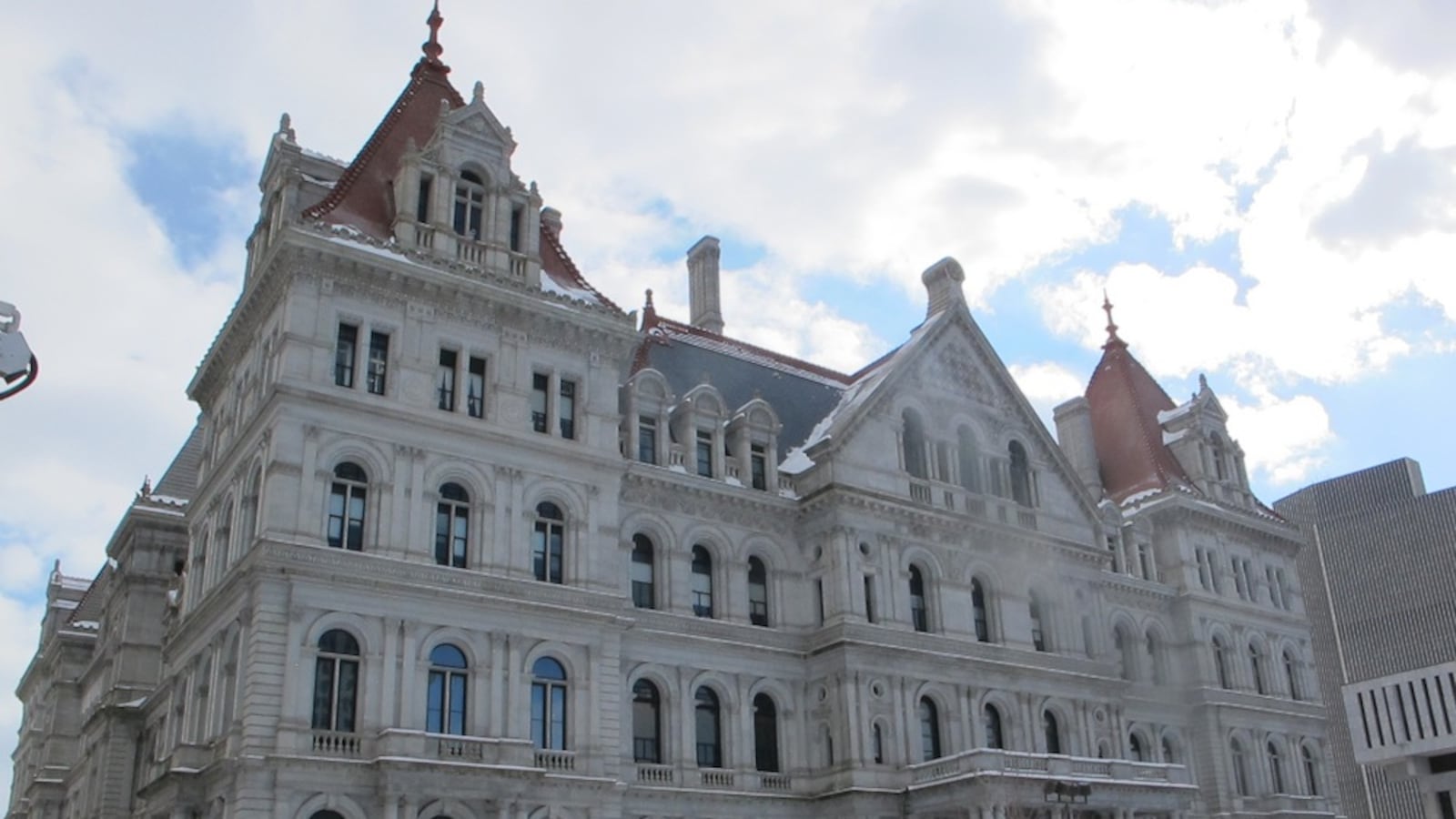After a hard-fought battle by the state teachers union, New York lawmakers went home for the summer without overhauling a controversial teacher evaluation law that ties state test scores to educator ratings.
The bill pushed by the unions would have left decisions about whether to use state test scores in teacher evaluations up to local union negotiations. While the bill cleared the Assembly, it was bottled up by the Senate’s leadership, which demanded charter school concessions in return that Assembly Democrats wouldn’t agree to.
The effort to decouple test scores from teacher evaluations was one of several that fizzled out at the end of a lackluster session characterized by lawmaker gridlock.
“Sen. Flanagan, his caucus and five Democrats chose to betray the state’s teachers,” said New York State United Teachers President Andy Pallotta in a statement. “Make no mistake, New York teachers, parents and public school students will remember which senators voted against their public schools when we head to the polls this September and again in November.”
There is some possibility that lawmakers could return to finish a few unresolved issues this summer, but Pallotta told Chalkbeat he is not holding out hope for that outcome.
The lack of action is a defeat for the state teachers union, which fought hard for the bill since the beginning of the session. Union officials have staged musical rallies, bought balloons, rented a truck with a message urging lawmakers to pass the bill, and capped off the last day of session handing out ice cream for the cause.
However, the legislative loss gives the union something to rally around during this fall’s elections. Also, other education advocacy organizations are content to engage in a longer process to revamp evaluations.
“Inaction isn’t always the worst outcome,” said Julie Marlette, Director of Governmental Relations for the New York State School Boards Association.“Now we can continue to work with both legislative and regulatory figures to hopefully craft an update to evaluations that is thoughtful and comprehensive and includes all the stakeholders.”
The news also means that New York’s teacher evaluation saga — which has been raging for eight years — will spill over into at least next year. Policymakers have been battling about state teacher evaluations since 2010, when New York adopted a system that started using state test scores to rate teachers in order to win federal “Race to the Top” money.
Teacher evaluations were altered again in 2015 when Gov. Andrew Cuomo called for a more stringent evaluation system, saying evaluations as they existed were “baloney.” The new system was met with resistance from the teachers unions and parents across the state. Nearly one in five families boycotted state tests in response to evaluation changes and a handful of other education policies.
The state’s Board of Regents acted quickly, passing a moratorium on the use of grades three to eight math and English tests in teacher evaluations. But the original 2015 law remains on the books. It was a central plank in that law — which could require as much as half of an educator’s evaluation to be based on test scores — that the unions targeted during this session.
With the moratorium set to expire in 2019, the fight over teacher evaluations will likely become more pressing next year. It may also allow the state education department to play a greater role in shaping the final product. State education department officials had begun to lay out a longer roadmap for redesigning teacher evaluations that involved surveys and workgroups, but the legislative battle threatened to short-circuit their process.
Now officials at the state education department say they will restart their work and pointed out that they could extend the moratorium to provide extra time if needed.
“We will resume the work we started earlier this year to engage teachers, principals and others as we seek input in moving toward developing a new educator evaluation system,” said state education department spokeswoman Emily DeSantis.
For some education advocates, slowing down the process sounds like a good idea.
“Our reaction on the NYSUT Assembly teacher evaluation bill is that you could do worse but that you could also do better and that we should take time to try,” said Bob Lowry, deputy director of the New York State Council of School Superintendents.
What seems to be a setback for the union now may be a galvanizing force during elections this fall. Republican lawmakers will likely struggle to keep control of the state Senate, and NYSUT is promising to use this inaction against them. That could be particularly consequential in Long Island, which is a hotbed of the testing opt-out movement.
It’s unclear whether the failure to act will also prove problematic for Cuomo, who is also seeking re-election. Cuomo, who pushed for the 2015 law the unions despise, is facing competition from the left in gubernatorial challenger Cynthia Nixon.
But at least so far, it seems like the union is reserving the blame for Senate Republicans and not for the governor.
Cuomo is “making it clear that he has heard the outcry,” said Pallotta. “I blame Senator Flanagan, I blame his conference and I blame 5 [Senate] Democrats.”

